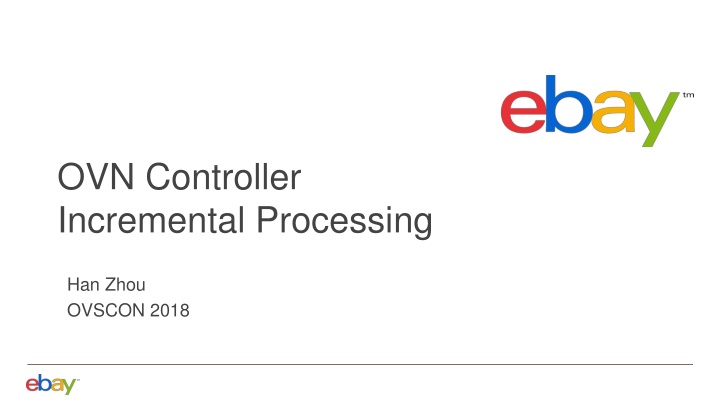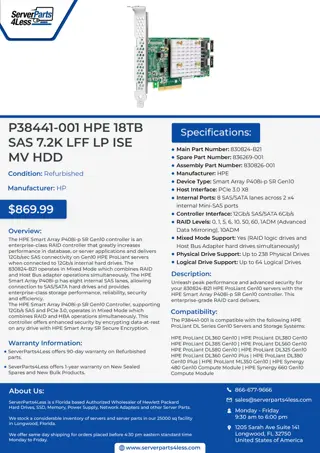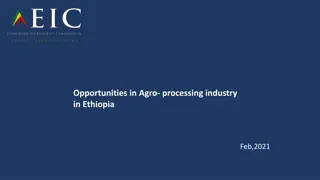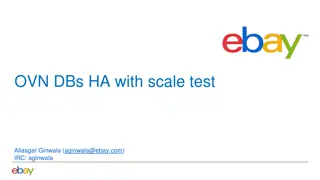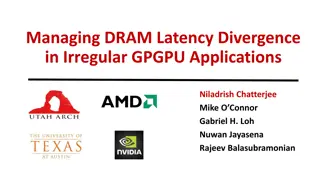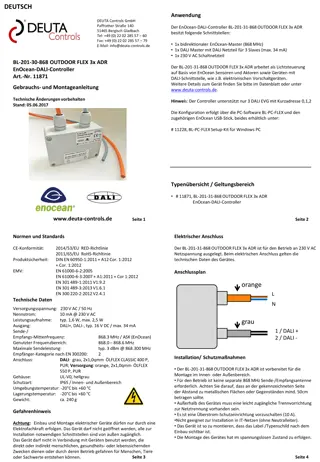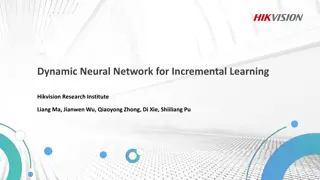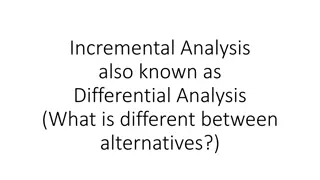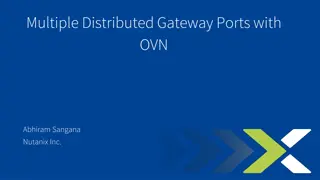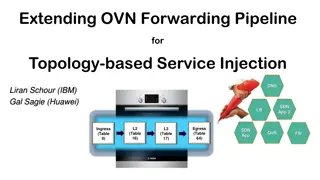Optimizing Incremental Processing in OVN-Controller for Enhanced Efficiency
Explore the challenges faced in scaling OVN-Controller, the benefits and issues of recomputing OVS flows, and the implementation of an Incremental Processing Engine to efficiently handle dependencies. Dive into the Dependency Graph of OVN-Controller to understand the various components involved in the distributed network setup.
Uploaded on Sep 07, 2024 | 4 Views
Download Presentation

Please find below an Image/Link to download the presentation.
The content on the website is provided AS IS for your information and personal use only. It may not be sold, licensed, or shared on other websites without obtaining consent from the author.If you encounter any issues during the download, it is possible that the publisher has removed the file from their server.
You are allowed to download the files provided on this website for personal or commercial use, subject to the condition that they are used lawfully. All files are the property of their respective owners.
The content on the website is provided AS IS for your information and personal use only. It may not be sold, licensed, or shared on other websites without obtaining consent from the author.
E N D
Presentation Transcript
OVN Controller Incremental Processing Han Zhou OVSCON 2018
Distributed Control Plane CMS (OpenStack/K8S) Central Logical/physical separation North-bound ovsdb ovsdb Virtual Network Abstractions North-bound Distributed local controllers Database Approach (ovsdb) Northd Northd South-bound ovsdb ovsdb South-bound Logical Flows HV HV GW OVN-Controller OpenFlows OVS HV OVSDB protocol (RFC7047)
Scaling Challenge of OVN-Controller Size of data to be processed by each ovn-controller Distributed LR requires every HV processes data for all related ports E.g. 10k logical ports: at least 40k logical flows and 10k port-bindings Logical flow parsing is CPU intensive Cloud workload changes frequently
Recomputing Compute OVS flows by reprocessing all inputs when Any input changes Or even when there is no change at all (but just unrelated events) Benefit Relatively easy to implement and maintain Problems Big waste of CPU resource on all compute nodes High control plane latency
Incremental Processing Engine DAG representing dependencies Each node contains Data Links to input nodes Change-handler for each input Full recompute handler Engine DFS post-order traverse the DAG from the final output node Invoke change-handlers for inputs that changed Fall back to recompute if for ANY of its inputs: Change-handler is not implemented for that input, or Change-handler cannot handle the particular change (returns false) input input input intermediate intermediate output
Dependency Graph of OVN-Controller SB mac_binding SB logical_flow SB mc_group SB port_binding SB addr_set SB port_group SB gw_chassis SB dhcp SB dp_binding SB chassis SB dhcpv6 SB encap SB dns OVS port OVS qos OVS open_vswitch OVS bridge Port Groups (converted) Address Sets (converted) Runtime Data ------------------------------ Local_datapath Local_lports Local_lport_ids Active_tunnels Ct_zone_bitmap Pending_ct_zones Ct_zones MFF OVN Geneve SB OVSDB input Local OVSDB input Input with change handler implemented Flow Output --------------------------- Desired_flow_table Group_table Meter_table Conj_id_ofs
Dependency Discovery The idea of Functional Programming Engine node output depends only on inputs Removing global OVSDB IDL handle from engine nodes Support passing individual table as parameter Removing global variable access from engine functions Support OVSDB IDL change tracking for references Other Inputs Node A depends on Table1 which references Table2. T1 T2 When a row in Table2 changes, the related rows in Table1 are tracked, which triggers change handling in Node A. Output A E.g. multicast_group references port_binding: port_binding change triggers multicast_group change handler automatically.
Change-handler Implementation Join with other inputs Reuse functions for both recompute and change-handlers E.g. consider_logical_flow() Build indexes for efficient probing open flow open flow Hash Index: SB lflow uuid open flow open flow lflow update open flow open flow Hash Index: SB Address Set uuid open flow logical flow logical flow logical flow address-set update logical flow logical flow
CPU Efficiency Improvement Create and bind 10k ports on 1k HVs Simulated 1k HVs on 20 BMs x 40 cores (2.50GHz) Batch size 100 lports Bind port one by one for each batch Wait all ports up before next batch
Latency Improvement End to end latency when 10k port already there Create one more logical port Bind the port on HV Wait until northd generating the lflows and enforcing on all other HVs
Further Improvement Implement more change handlers as needed E.g. support incremental processing when port-binding happens locally - further improve end-to-end latency Incrementally flow installation Avoid full comparison between desired flows and installed flows in ofctrl_put()
Challenge of Incremental Processing Complexity of change handler implementation
The Future - Differential Datalog Differential Datalog (DDlog) An open-source datalog language for incremental data-flow processing Defining inputs and outputs as relations Defining rules to generate outputs from inputs Benefit Built-in incremental processing No need to implement change-handler manually Easier to maintain and add new features Effort reused for both OVN-northd and OVN-Controller
DDlog - whats next OVSDB wrappers for DDlog input & output Rewrite the computation logic using DDlog Regression tests & scalability tests
DDlog Example Implement the LogicFlow-AddressSet mapping Input LogicFlow (id: uuid, match: string, action: string, ...) Input AddressSet (id: uuid, name: string, ) Output LflowAddrsetMap (lflow: uuid, addrset: uuid) LflowAddrsetMap (lflow: uuid, addrset: uuid) :- LogicFlow (lflow, match), FlatMap (addrset_name = addrset_from_match(match)), AddressSet (addrset, addrset_name).
References Incremental Processing on top of branch-2.10 https://github.com/hzhou8/ovs/tree/ip12_rebase_on_2.10 Differential Datalog https://github.com/ryzhyk/differential-datalog ovn-scale-test https://github.com/openvswitch/ovn-scale-test
